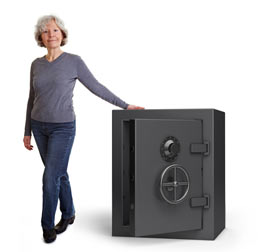 While it’s easy to let your personal assets get entangled with your business assets, particularly if you’re running a small, sole proprietor business, it’s a good idea to put some distance between personal and business assets for tax and legal purposes.
While it’s easy to let your personal assets get entangled with your business assets, particularly if you’re running a small, sole proprietor business, it’s a good idea to put some distance between personal and business assets for tax and legal purposes.
Perhaps the best reason to incorporate your business is to protect your assets and to reduce liability. Even if your business is only a part-time venture, it may be a good idea to incorporate for the liability protections and asset protections incorporation offers. By incorporating, you set up a wall that protects your home and personal property from business risk – keeping them safe from potential claims by creditors or the people you do business with, such as customers and suppliers and other vendors. The protections offered by corporate or LLC status can also help part-time business owners protect their income from their full-time job.
Just incorporating isn’t enough to make sure your personal assets are protected, however. There are also a few proactive steps you need to take to shield your personal property from claims.
For starters, make sure to always use the name of your corporation or LLC when conducting business. This clearly delineates your business from your personal actions. Also be sure to follow your corporate bylaws and rules to the letter. Thirdly, make sure you keep your business funds from your private funds. Funds belonging to the business and your personal funds should never be kept in the same account. Also be sure to pay all your corporate taxes from the corporate account, not your personal account.
While these rules may seem nit-picky and inconvenient, they’ll establish a clear line between your corporate and personal finances that can be presented in court should a claim ever arise, thus safeguarding your personal assets.
Another good idea that will help protect your business and personal assets is purchasing a commercial insurance policy. These policies cover claims that may arise from the conduct of your business. If a claim is filed and there’s a judgement against your business, the commercial insurance policy will kick in and pay the claim, insulating your business assets and any personal assets the plaintiffs might have otherwise chosen to come after.
By taking the proper steps to separate and insulate your business and personal assets, you safeguard both your business and your personal finances.









